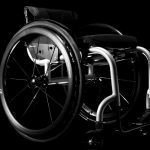Natural disasters seem to feature regularly on the news. Whether it is Californian forest fires or Australian floods, you can’t seem to go a day without being hit by harrowing pictures of the devastation they cause.
Fortunately, here in the UK our climate is a little more benign, but we can still get hit by severe and disruptive weather as the floods of 2015/2016 showed. Coping with these is hard enough when you are able-bodied, but how are the disabled supposed to manage?
Anyone with a disability faces a different set of circumstances to the rest of society. The vital supports and services that they rely on every day (such as carers or electrically powered assistive devices) are usually the first things to suffer. Furthermore, evacuation arrangements tend to completely overlook the needs of the disabled, leaving them stranded and deprived of essential services like food, water and power.
So, to ensure you are not caught unaware by a severe weather event, it makes sense to put together your own emergency plan.
Create a support network
Firstly, identify a number of people who are local to you and who would be willing to help in an emergency. You can then work with this support network to create a plan that will meet your needs with the kind of help and assistance that will make a difference in an emergency.
Make sure you tell your support network where your emergency kit (see below) is stored and give one of them a key to your home so they can gain access. If you live in a flat above the ground floor, make sure the management company know and find out what procedures they have drawn up for your evacuation.
Finally, practice using your equipment with your support network as well as rehearsing your evacuation procedures and route.
Get your emergency kit ready
The essentials for this kit should include:
- Emergency plan with self-assessment plan listing your medical conditions
- Medical supplies you need for 72 hours
- Wheelchair repair and maintenance kit
Coping with a power cut
A power cut can happen at any time and whilst most may only be of an hour or so’s duration, it makes good sense to be prepared for them. If you rely on life-sustaining equipment or medicines that need refrigeration, make sure you have a backup supply that can take over – whether this is batteries or a generator. Similarly, keep extra batteries in your house, or ensure you have fully charged-up spares.
Finally, ensure your electricity/gas supplier has your phone number and recognises your different requirements in the event of a power cut.






Recent Comments